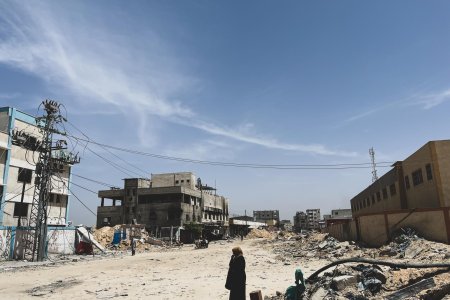 Ben Milpas
Opinion
Ben Milpas
Opinion
Gaza reading list 2, February - June 2024
07/01/2024This reading list gathers articles and videos published between February and June 2024.
 Ben Milpas
Opinion
Ben Milpas
Opinion
This reading list gathers articles and videos published between February and June 2024.
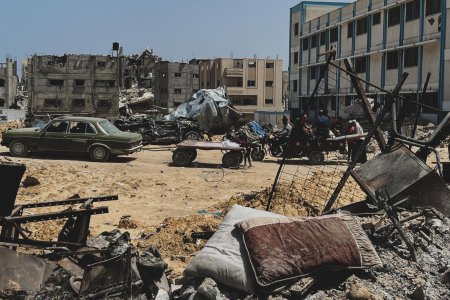 Ben Milpas
In the media
Ben Milpas
In the media
On 11 June 2024, Rony Brauman was invited alongside with journalist Shirli Sitbon and nonresident Senior Fellow at Atlantic Council Ahmed Fouad Alkhatib on France 24 English to talk about the situation in Gaza. During the interview, the former president of MSF evokes the ongoing starvation and the need for a ceasefire.
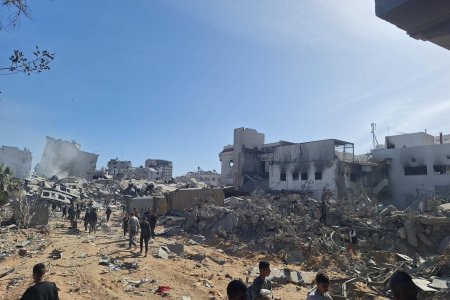 MSF
Video
MSF
Video
Six months after the events of October 7, the situation in Gaza is catastrophic. The population is trapped and threatened with starvation, while the possibility of a ceasefire is not guaranteed. In this context, how can we describe what is happening in Gaza? Rony Brauman is categorical: it is appropriate to talk about genocide. In this interview conducted by Elba Rahmouni, he offers a historical and political reading of the Israeli-Palestinian conflict, looking at the reasons given by Israel to justify the siege of Gaza, the fate of prisoners and the usefulness of humanitarian law.
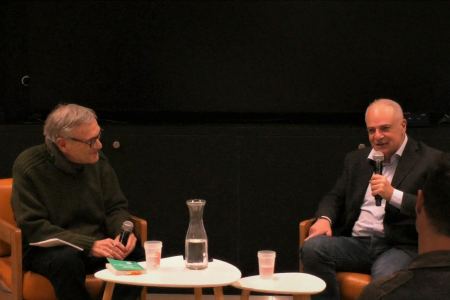 Conference
Conference
We were pleased to welcome Pierre Hazan, author of the book Négocier avec le diable. La médiation dans les conflits armés for a conference and debate on Thursday December 15th, 2022, 18:30, at MSF (34 avenue Jean Jaurès, 75019 Paris). The conference was livestreamed and translated simultaneously to English.
On March 8, 2020, the FIFDH Geneva organised a debate between Rony Brauman, Annyssa Bellal - Strategic Adviser on International Humanitarian Law - and Amani Ballour, a paediatrician who spent five years in an underground hospital in Syria and the protagonist of the film The Cave, to answer the question "Does international humanitarian law legitimise wars ?"
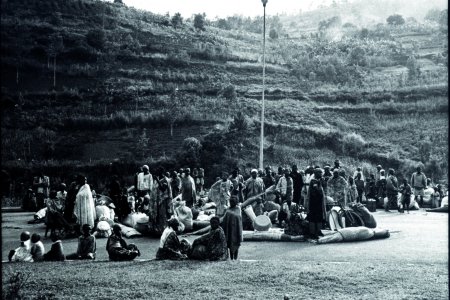 Xavier Lassalle/MSF
Opinion
Xavier Lassalle/MSF
Opinion
The publication of the journalist Judi Rever’s book, In Praise of Blood, on the crimes committed by the Rwandan Patriotic Front’s armed rebellion has rekindled discussion over the existence of a “double genocide”, one committed against the Tutsis under the orders of Rwanda’s interim government which took power in April 1994 following the assassination of President Habyarimana, and the other against the Hutus by the Rwandan Patriotic Front (RPF) which seized power in July 1994. There is little or no controversy about the reality of the genocide of the Tutsis in the world of Rwandan studies, but the claim that the Hutus were in turn victims of genocide sparks reactions as violent as they are confused. The cause of this confusion can be found in the different definitions of a term used in at least three fields: history, law and politics.
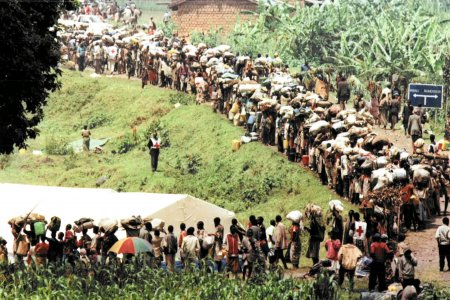 John Parkin
Interview
John Parkin
Interview
How much is known about the daily experiences of humanitarian workers in extreme situations such as major conflict or disaster? In their new book, “Humanitarian Aid, Genocide and Mass Killings: Médecins sans frontières, the Rwandan experience, 1982-97”, Marc Le Pape and Jean-Hervé Bradol set out to answer some of these questions. The book is also informed by Bradol’s experience of working for Médecins Sans Frontières in Rwanda during the genocide.
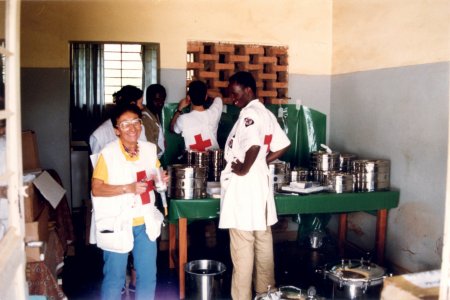 Xavier Lassalle
Opinion
Xavier Lassalle
Opinion
Rony Brauman analyses the de-politicization and criminalisation process of the conflict in Darfur, resulting from an exclusively ethnic reading of this crisis and by the inappropriate use of the concept of "genocide".
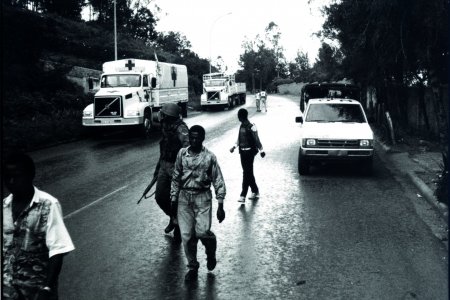 Xavier Lassalle
Opinion
Xavier Lassalle
Opinion
Rony Brauman decribes how the qualification of the conflict in Darfur as genocide leads only to a dead end and warns against the abuse of this concept.
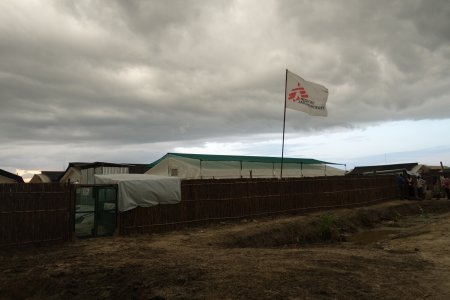 Jacob Kuehn
Analysis
Jacob Kuehn
Analysis
This essay points out the fragility of the arguments most often used by humanitarian organizations to justify their support for an international criminal court. Questioning NGOs' infatuation with punitive justice, Fabrice Weissman argues that humanitarian organizations should advocate for politics of aid and mediation rather than for a global moral order based on judicial punishment and just war.
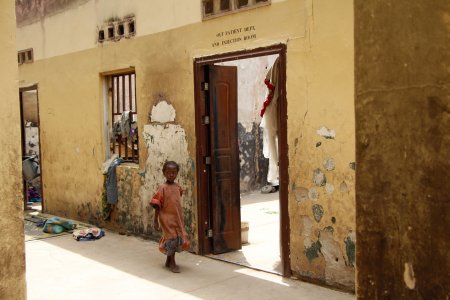 Benoit Finck
Analysis
Benoit Finck
Analysis
Rony Brauman focuses on the humanitarian environment and practices in war, in order to try to understand and analyze its political and ethical stakes. Starting with the creation of the Red Cross at the end of the XIXth century, he then focused on the contemporary postcolonial period, switching between various scales and reporting on contradictory points of view and issues.
 Xavier Lassalle
Interview
Xavier Lassalle
Interview
Interview with Jean-Hervé Bradol and Marc Le Pape. The book is published by Manchester University Press and will be out in January 2017.